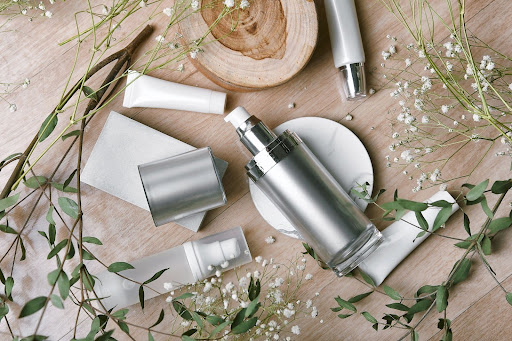Did you know that the global cosmetics industry is currently valued at over $380 billion dollars (1)? Although science has come a long way, artificial ingredients can actually do more harm than good. Natural skin care products are a popular trend, and for good reason.
Changing industry standards
First and foremost, it’s important to realize that the cosmetics industry itself has become much stricter when it comes to the ingredients in specific products. In this sense we are not just talking about chemicals. Consumers also need to be assured that products claiming to be ‘organic’ meet certain criteria.
For example, Sofim is a supplier of sustainable and organic cosmetic products. They are approved by a series of certifications known as COSMOS (COSMetic Organic and Natural Standard). Users can therefore be assured that the associated cosmetics meet industry requirements to be labeled as ‘organic’. The key point here is that simply claiming to offer organic solutions has little value if this promise is not independently verified.
The move away from artificial skin care ingredients
Why have many consumers chosen to use natural solutions for their skin care needs? One major reason concerns the possible side effects associated with chemicals. These are collectively known by the rather complicated term ‘Per- and polyfluoroalkyl substances (PFAS)’. Without going into too much detail, these materials tend to break down quite slowly compared to all-natural alternatives. Some scientists also believe that they may pose long-term health risks, such as (2):
- Fertility problems
- Some types of cancer
- Damage to the liver
- Thyroid disorder
- Obesity
Keep in mind that research is still ongoing, and yet a growing number of consumers are simply becoming more aware of the risks that specific chemicals can pose. Either way, there’s little doubt that all-natural alternatives are here to stay.
Popular organic substances
The good news is that many natural substances are readily available, and in some cases cheaper than their artificial alternatives. Common examples include coconut oil, jojoba oil, aloe vera, tea tree oil and vitamin C. Some of these are topical, while others (such as green tea) are healthy drinks that provide additional benefits. Others are less known, and yet the benefits are just as great. Examples include squalene (a natural emollient), vegetable waxes, and organic alternatives to traditional substances such as petroleum jelly.
So why are all-natural ingredients often preferred? A practical problem is that the user is much less likely to develop an allergic reaction; an obvious concern for those with sensitive skin. Another observation is related to the production processes themselves. Organic ingredients are much more environmentally friendly compared to chemicals. In other words, suppliers are able to drastically reduce their overall carbon footprint; an important feature in terms of long-term sustainability and combating the ongoing impacts of climate change.
Back to basic
Let’s also not forget that natural skin care products are certainly nothing new. For example, calming flowers such as chamomile and rose have been used for thousands of years. Science has simply begun to better understand the potential benefits they have to offer. When it comes to natural skin care products, beauty indeed goes beyond the skin!
Sources:
- https://www.globalmarketschats.com/market-report/global-cosmetics-market-3271
- https://www.eea.europa.eu/en/about/contact-us/faqs/what-are-pfas-and-how-are-they-dangerous-for-my-health





